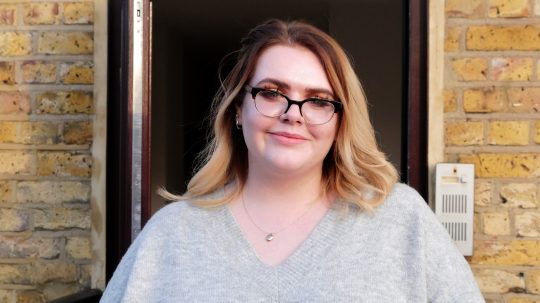
[Text on screen]: 1.6 million children in Britain live in temporary, overcrowded, or rundown housing.
Homelessness can deprive children of their right to accommodation, family life and education.
Homelessness is a human rights issue. Since 2014 the number of children in temporary housing has soared by over a third. Councils in England are now providing temporary accommodation for more tan 120,000 children.
In UK law, councils have legal duties towards homeless people. The Housing Act 1996 requires authorities to find housing for homeless families with children. It is unlawful to keep homeless families in temporary housing for more than 6 weeks, but 74% of families stay in temporary accommodation for over a year.
Living with ongoing uncertainty can be very damaging to a child’s wellbeing. Temporary housing can also make it difficult for children to attend school. It can affect their focus in class, fracture friendships and disrupt routine.
What has this got to do with human rights?
A child’s right to education is protected under the Human Rights Convention. The right to family life is protected by Article 8 of the the Human Rights Convention. Lack of proper housing can have a devastating impact on a child’s private and family life.
Children’s rights are also protected under international law. A UN treaty, the The Convention on the Rights of the Child, protects children’s right to adequate housing.
More and more children are facing homelessness. More and more children are being deprived of their basic rights.
Children’s rights are being protected by these acts and treaties on paper…but more needs to be done to protect them in the real world.
We need to fight or the rights of our future generations.












